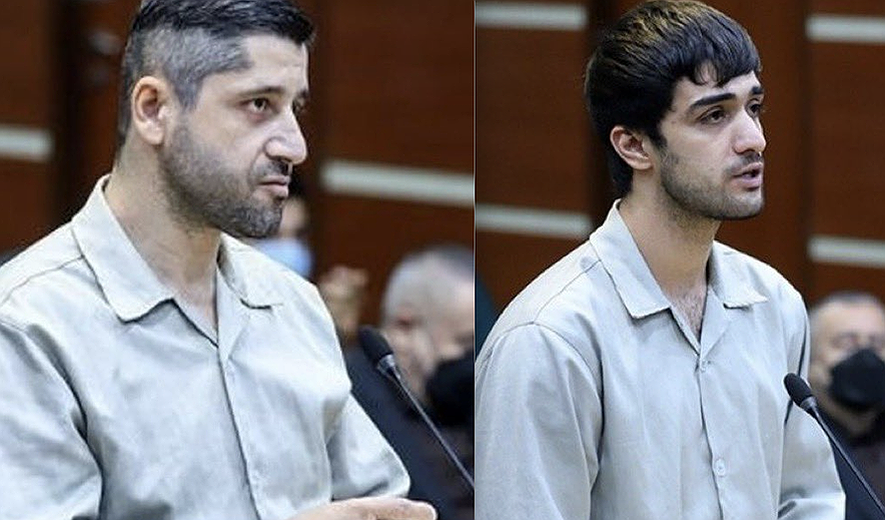Iran Human Rights: Executions of Mohammad Mehdi Karami and Mohammad Hosseini Must be Met with Strongest Response

Iran Human Rights (IHRNGO); January 7, 2023: The Islamic Republic’s Judiciary announced the execution of Karaj protesters Mohammad Mehdi Karami and Seyed Mohammad Hosseini who were sentenced to death for charges of efsad-fil-arz (corruption on earth).
Condemning the criminal executions in the strongest possible terms, Iran Human Rights warns of the execution of a large number of protesters in the coming days if this is not met with an appropriate response.
Director, Mahmood Amiry-Moghaddam said: “The executions are an extension of the killing of defenceless protesters in prison and have no legal basis. The political cost of the executions can be raised by Iranians inside and outside the country protesting more, and the international community to implement more severe punitive measures against the Islamic republic and repressive organisations like the IRGC and the Office of Ali Khamenei.”
Mohammad Mehdi Karami and Seyed Mohammad Hosseini are the third and fourth protesters to be executed in relation to the current protests. Protesters Mohsen Shekari and Majidreza Rahnavard were executed in Tehran and Mashhad in early December. Iran Human Rights previously published a list of 100 people at risk of death penalty charges, sentences and execution.
Mohammad Mehdi Karami and Seyed Mohammad Hosseini were arrested in relation to the death of an IRGC member at the scene of Hadis Najafi’s 40th day memorial at the cemetery in Karaj on November 3. Hadis Najafi was killed by security forces in Karaj on September 21. They were charged with “efsad-fil-arz (corruption on earth) for committing crimes against national security, attacking basiji forces and assembly and collusion against national security and publishing calls against the government online.”
On November 30, they were tried by Branch One of the Alborz province Revolutionary Court, presided by Judge Asef Alhosseini along with six other defendants. A further ten defendants were tried over the next two days. They were denied access to their lawyers, subjected to torture to force confessions and deprived of all due process and fair trial rights. Five men including Mohmmad Mehdi Karami and Mohammad Hosseini were sentenced to death. Their sentence was upheld by the Supreme Court on January 3 while the other three men were granted appeal. Both men were denied access to their lawyers throughout the proceedings.
Seyed Mohammad Hosseini’s chosen lawyer, Ali Sharifzadeh Aradakani who was finally granted permission to visit him in Karaj Penitentiary on December 18, wrote: “His stories were full of tears. From the torture, beatings while blindfolded, handcuffed and shackled, to being kicked until he passed out, from being beaten on the soles of his feet with iron rods to being electrically shocked all over his body, a man whose confessions under torture have no legal basis.”
Mohammad Mehdi Karami’s chosen lawyer, Mohammad Hossein Aghasi was also denied access to his client. He tweeted today that his client had called him from the prison on Wednesday and stated that he was a dry hunger strike because they would not grant him access to his case. “We were going to form an appeal if they granted me access to the case,” he wrote.
Mohammad Mehdi Karami’s father had previously stated in an interview with Etemad newspaper that his son was innocent of the crimes he was accused of. The interviewing journalist, Mahdy Beyk was arrested after publishing his conversation with Mohammad's mother after her son's sentence was upheld by the Supreme Court.

